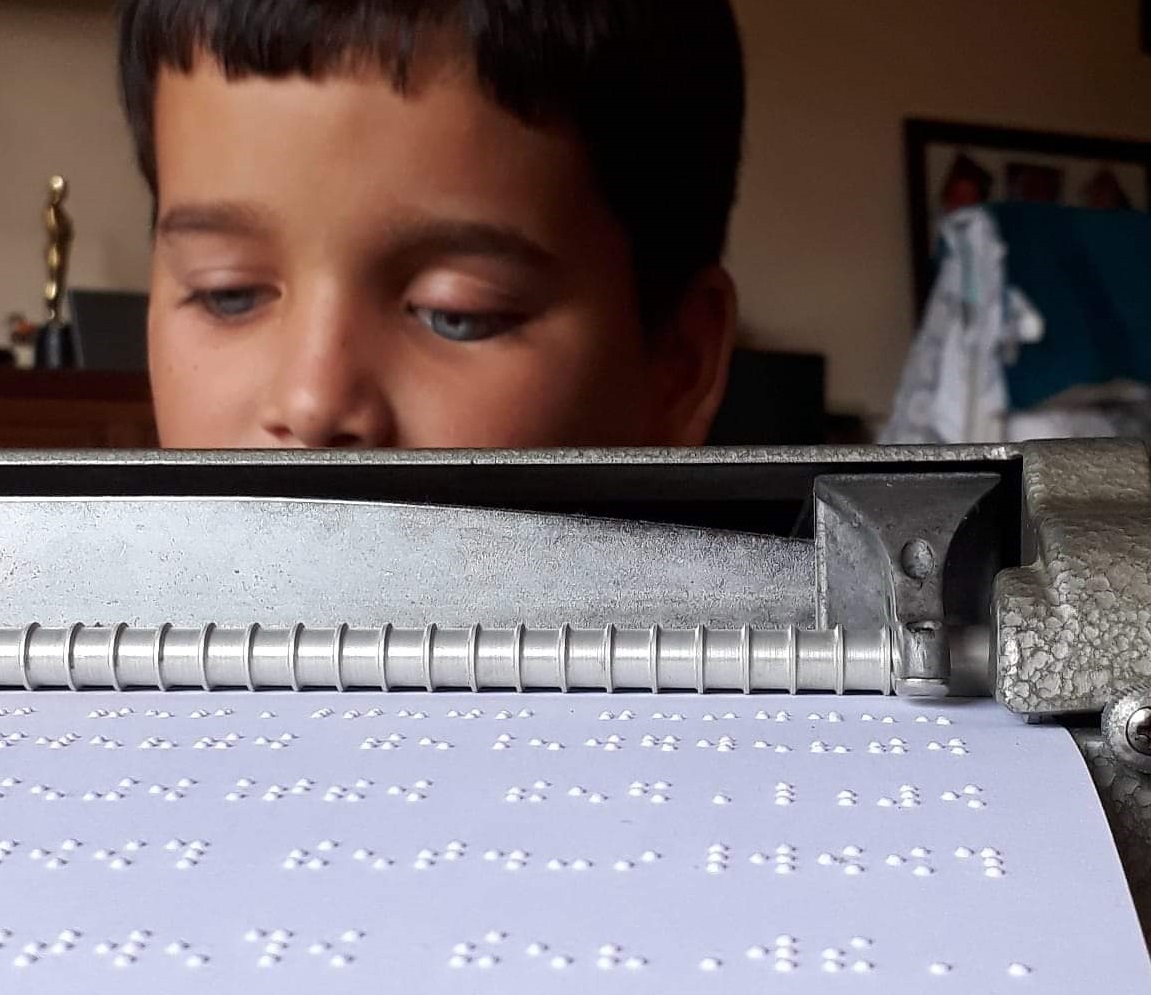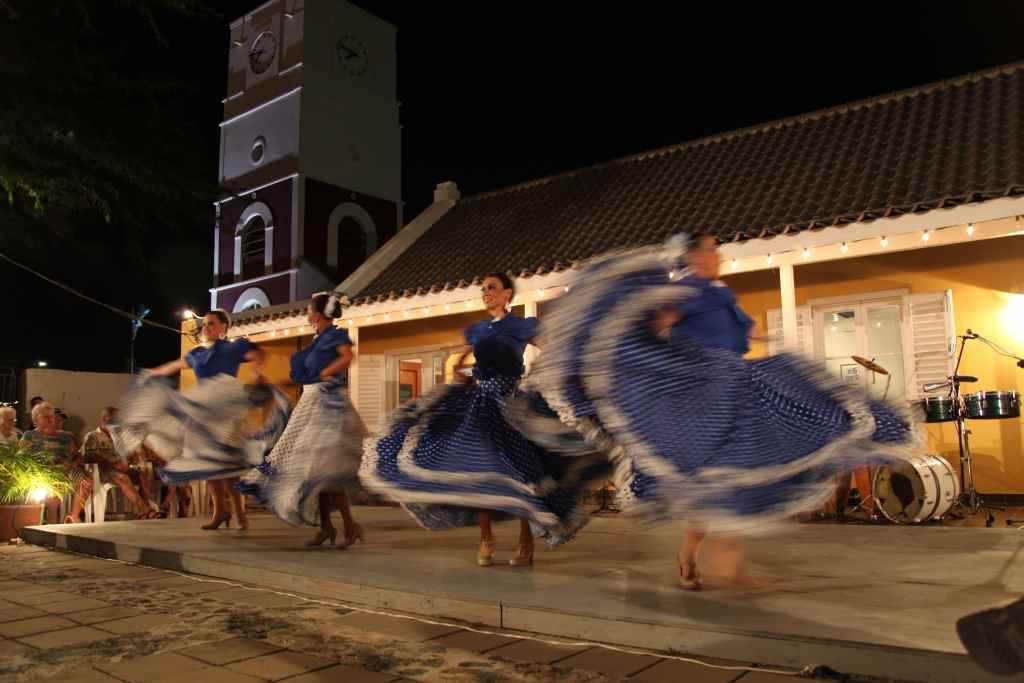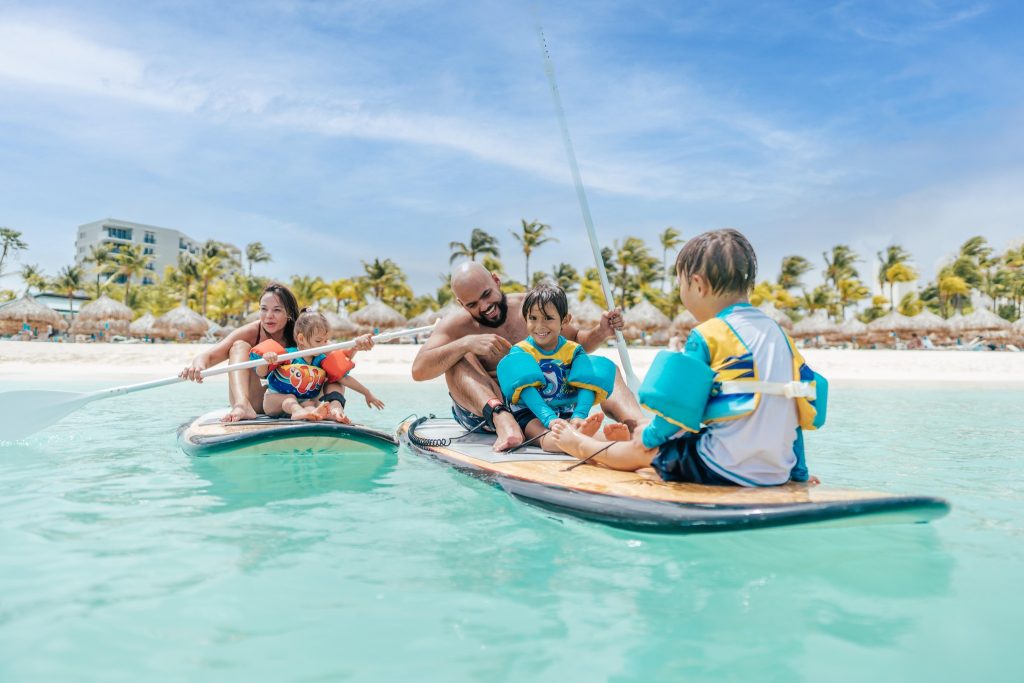The day my son, Gabriel, was born was the most terrifying day of my life. I was only 32 weeks pregnant, he was born with a terrible infection and his doctors told me that the next 72 hours would be critical. It wasn’t even until much later that night that I got to see him. He was impossible small, with a butterfly needle pumping antibiotics into his system and a minuscule feeding tube pumping formula into his stomach through his nose. I made my boy a lot of promises that night. I promised that I’d always take care of him. I promised I’d be the best mother I possibly could. I told him how much I loved him and how important he was to me. I shamelessly begged him to live.
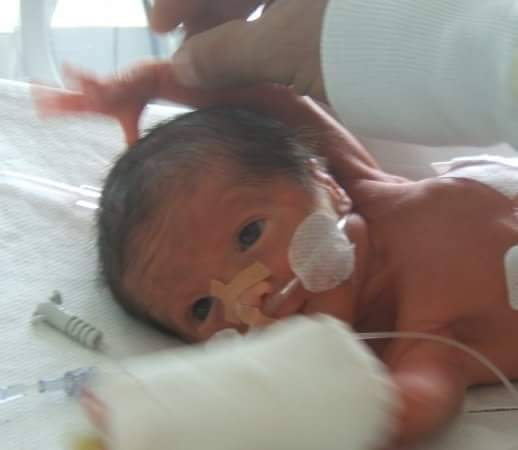
The day I got to take my son home from the Neonatal Unit of Aruba’s Horacio Oduber Hospital was one of the happiest days of my life. He’d ‘made weight’, at a whopping 5 kilograms, and we left the hospital with the cheers of the incredible NICU staff behind us. Also behind us (so I thought), were the complications of my child’s premature birth. We went home and spent several lovely weeks getting to know each other. Eventually, I noticed that my son started missing milestones. He never smiled and had no interest in reaching for things. His eyes were the most beautiful shade of blue but he only ever opened them in dim light. Just when my concern was reaching it’s crescendo, a doctor at the Yellow Cross noticed a cataract in my baby’s eye. We were immediately referred to a specialist who wanted a second opinion from an eye hospital in Bogota, Colombia. AZV and the Aruban government were amazing during that time. They got us on a plane to Colombia, with a handwritten passport for my little guy, within days of the specialist’s referral. Off we flew, certain that a mild surgical procedure would fix my baby’s eyes.
The day I learned about Retinopathy of Prematurity (ROP) was the worst day of my life. Gabriel’s doctor, in Bogota, cried with me as she explained that my son only had minimal light perception but no real sight and his condition was degenerative. Eventually my baby would go on to lose the little sight he had.The news that a disease that I’d never even heard about would one day blind my boy was emotionally crippling. My mind was racing with wild thoughts that spiraled into even wilder ones. What kind of life could Gabriel live in the dark? How would he ever find his shoes? I’d never even met a completely blind person – how on Earth was I going to raise one? I’m not going to lie to you – those were dark days, my friends.
The day we came back to Aruba from Colombia, I had a very difficult decision to make: should we stay or should we go? I’m an American Expat, so I could have easily taken Gabriel to the States – where there are considerably more resources for people with physical disabilities than here on the Island. However, I’m an only child and my mother passed away years before my son was born. My closest ‘family members’ were the ones I’d found here; my son’s father and his lovely family, my Aruban play-sister and all my other Island friends – Aruba had become my home. The thought of leaving was daunting, but staying seemed like an irresponsible, selfish choice that could possibly have a negative impact on my son’s ability to thrive. I was, quite frankly besides myself. I think I may have even had a case of the vapors. Then I heard a radio commercial for FAVI – the local foundation for the blind. I decided to check it out.
The day I walked into Favi was a game changer. Immediately, I found the support, guidance and resources I desperately needed. Under their tutelage, I learned how to help my son learn to help himself. I found a way to embrace blindness instead of being intimidated by it. I gained a support system that’s been an invaluable resource to my mothering. I decided to stay on the island and be a stay-at-home-mom while Gabriel was little – something I’d never been able to do, freely, as a single mother in the USA.. I always figured that I could leave if things didn’t work out. That was the day that I truly started my voyage into the dark.
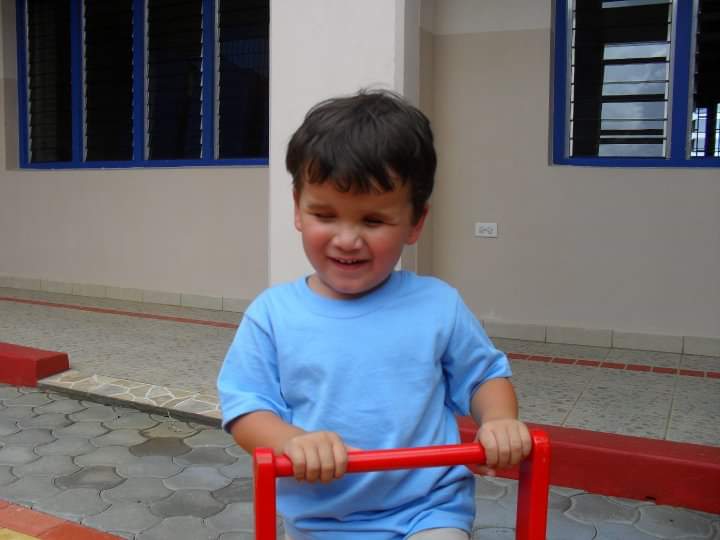
Meanwhile, in the Netherlands, another mother was having an eerily similar, inverse experience. Theresita Tromp’s daughter, Casiene, also had a premature birth which resulted in ROP. They were living in the Netherlands when Casiene was born, and for a while, staying in a ‘more developed’ country seemed like the right thing to do. Casiene had access to a school for the blind and all the resources that Holland had to offer a disabled citizen.
Theresita’s life became even more complicatedly wonderful when her second child, Caylan, was born. Being the parent of two children (one of whom has a significant disability) is a daunting task. Theresita began to long for the support system, family and life she’d left on Aruba’s sunny shores. That longing was cast into sharp relief when she was battling illness as a recently single mother. She suddenly realized that she was very much alone and far from home. She desperately wanted to come back to Aruba but she was skeptical of the island’s ability to help her daughter.
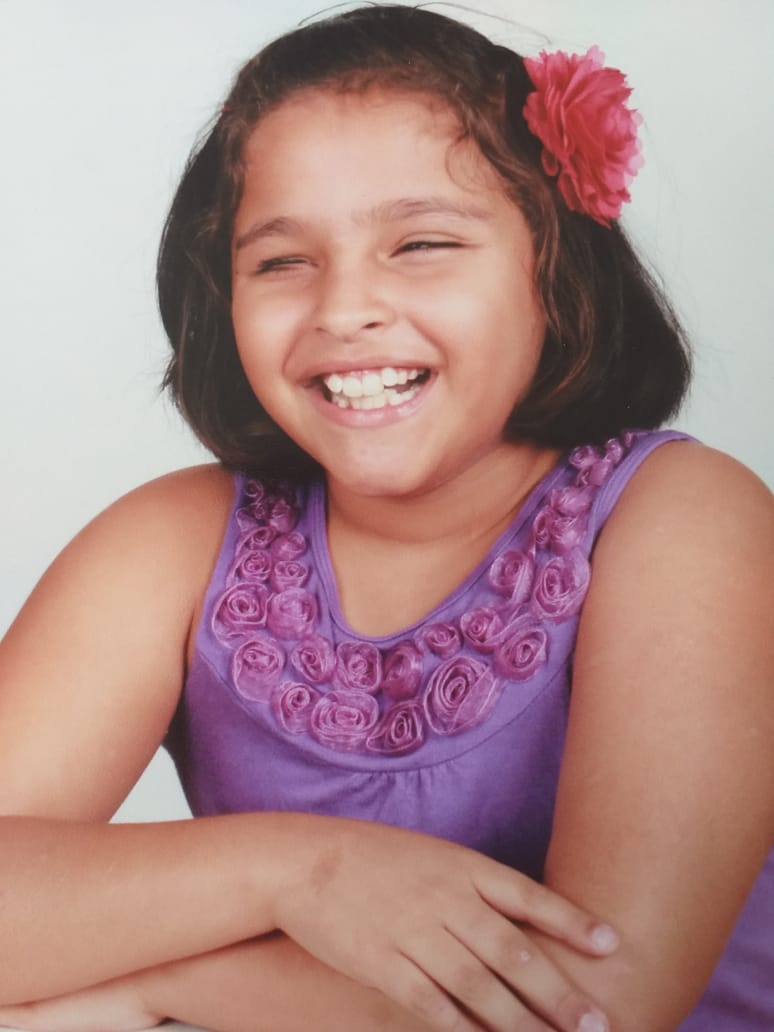
Theresita is a very clever woman. When the thought of going back home to Aruba first passed through her mind, she wanted to know her options. She asked her nephew, who was living on the Island, to go on a reconnaissance mission and scope out FAVI. She wanted to make sure her daughter would have options before she made the decision to uproot her life. The call she’d been hoping for came through later that week: FAVI was more than up for the challenge. More than that, there was already a completely blind child being mainstreamed through the educational system. A month later, Theresita brought her little family back home.
Theresita and I couldn’t be more different. She’s a sophisticated lady who always looks lovely and conducts herself with grace and poise. Meanwhile, I fall into the category of ‘hot, mess mom’. Seriously, if I can find my car keys in the morning, I call that a good day. Despite our differences, we’re bound together with something no one else on Aruba completely understands: what it’s like to grow a child in the dark.
The day Gabriel and I met Theresita and Casiene the game changed again. My Little Dude and I finally had peers! We finally could talk with people who not only have compassion for us but actually walk in our shoes. (Not literally. Theresita’s shoes always match her handbag. Usually I can’t find mine.) We’ve all became fast friends. We support, encourage and rally around each other and our children as they pave the way for other disabled children to have better opportunities on Aruba.
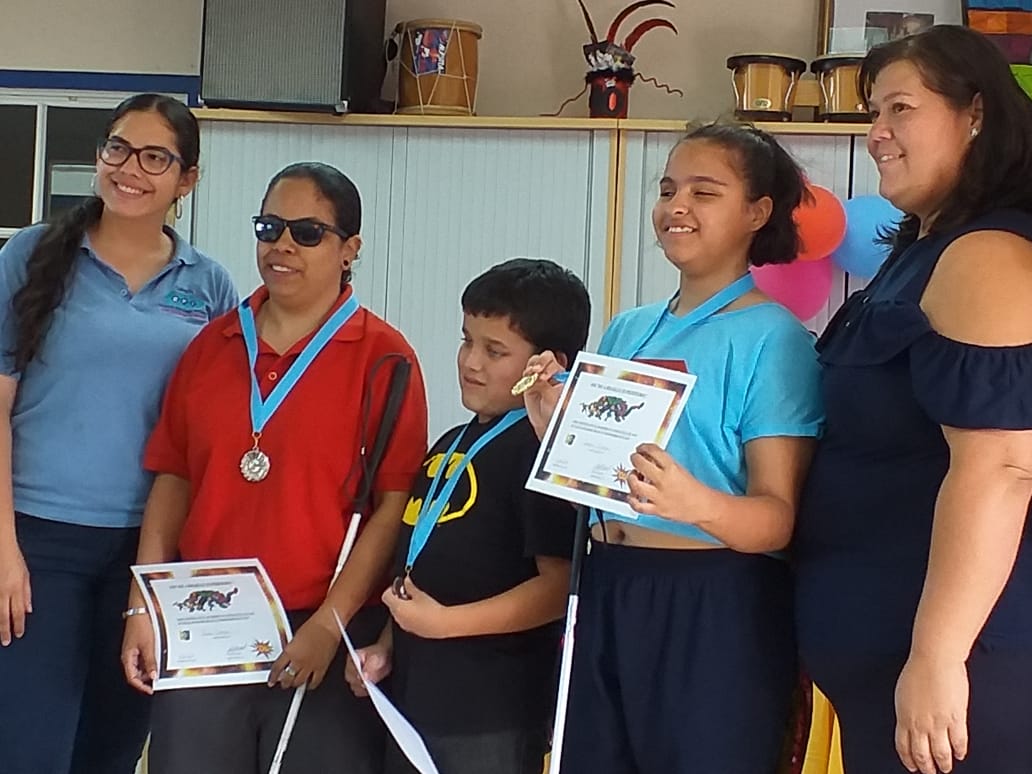
Today, as I write these words, my heart is full of pride. Both of these exceptional children I’ve written about scored excellently on the secondary school placement tests they took last month. Next year, they’ll be attending Colegio a prestigious high school. The pride I feel is shared by Theresita, however that pride doesn’t belong to us alone, it belongs to all of the incredible people who’ve helped us along the way.
FAVI has been wonderful as they devised ways to help our children get through school. Generous donations from the Kiwanis Club Aruba got them their first braillers so they could learn to read and write. Gianni’s Group sponsored “Dinner in the Dark” for the past three consecutive years, with all of the proceeds going to FAVI. With that incredibly generous outpouring of support, we were able to upgrade to electronic braille readers – so the kids won’t have to lug their Perkins braillers around next year in secondary school. The Divi Group donated brand new laptops that are compatible with the braillers which means that, instead of having to painstakingly braille reading materials, they’ll be able to read anything they want.
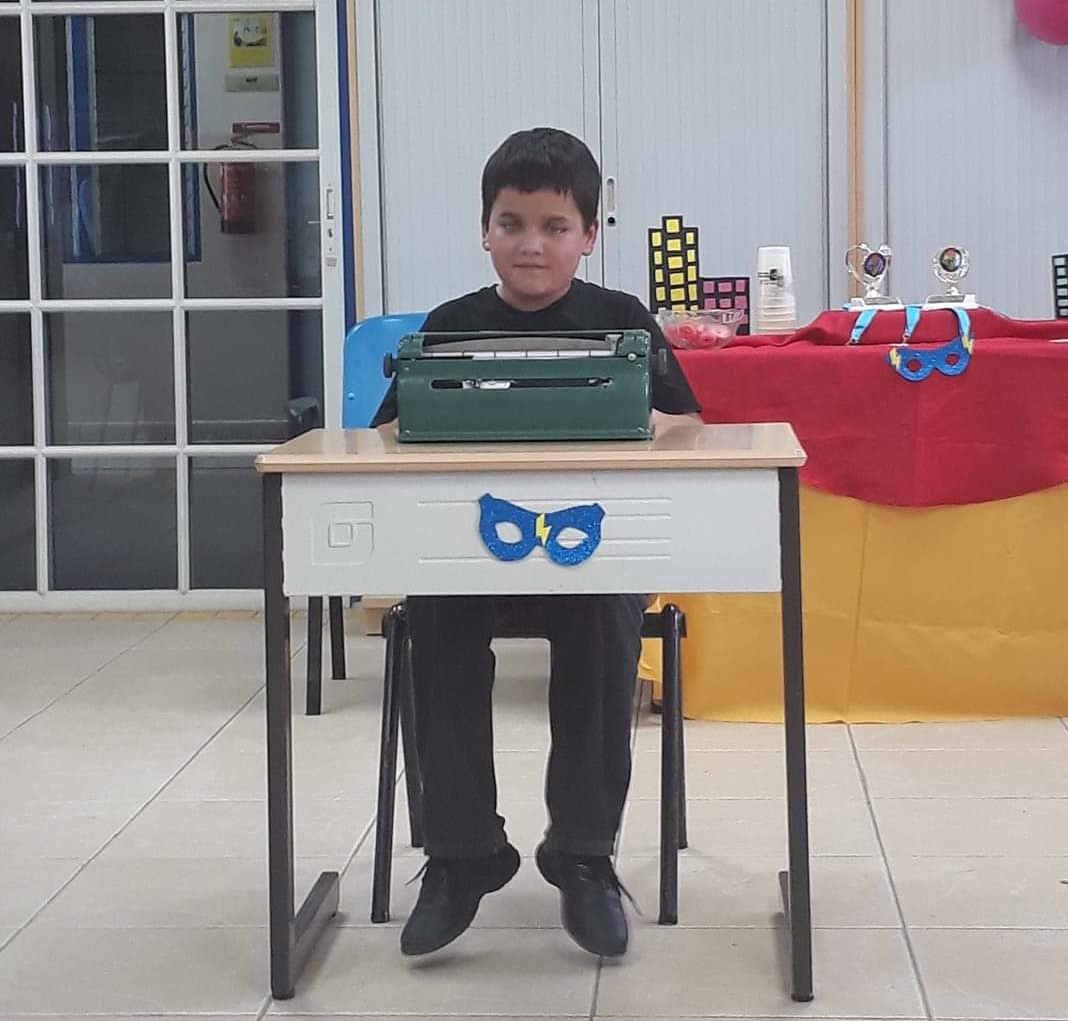
Some local schools begged off taking a child with special needs but two schools on the island rose to the occasion. Casianne began attended Colegio Santa Teresita in St. Nicolas in the second grade, with the fabulous Analisa Leest as her primary Teaching Assistant (TA). Gabriel goes to St. Anna school in Noord. He started his educational experience at Cayana Kleuter School, also in Noord. He still likes to go back for a visit from time to time, his kindergarten teacher, Darinka Arends and all of the other wonderful teachers at Cayana will always hold a special place in his heart – they are some of the kindest people you could ever hope to meet.
His first TA was also his liaison from FAVI, Gwen Croes. Gwen retired soon after Gabriel started primary school, but I can’t even begin to tell you how much she helped me out when my boy was small. She was so much more than just a teacher. Gwen helped me figure out a way to keep those promises that I made to my son the first night we met, she helped me become the mom I am today.
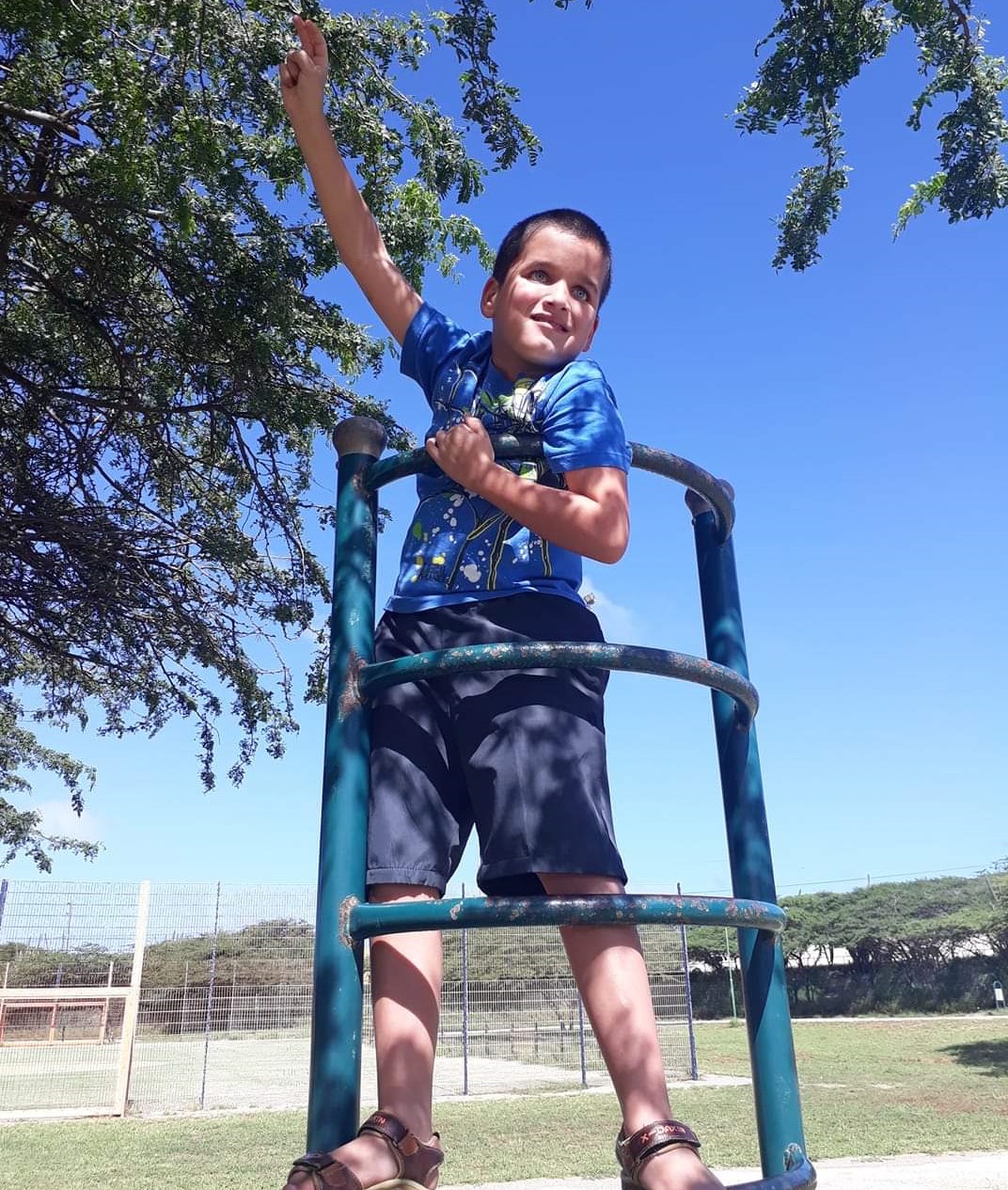
Gabriel attended grades 1-4 with the amazing Kimberly Lacle, who was instrumental in helping design a plan for his education. This was back in the day, before FAVI had a braille printer – her poor fingers used to practically bleed from all that brailin’! At that time, our liaison from FAVI, was Rina Croes. She too, went above and beyond for my child, time and time again. She was an absolute angel – maybe that’s why she got called home before we were ready to say goodbye. In the 5th grade, he was paired with two lovely ladies; Jovelle Castro and Meredith Faarup as he began to transition into a more electronically based system of learning.
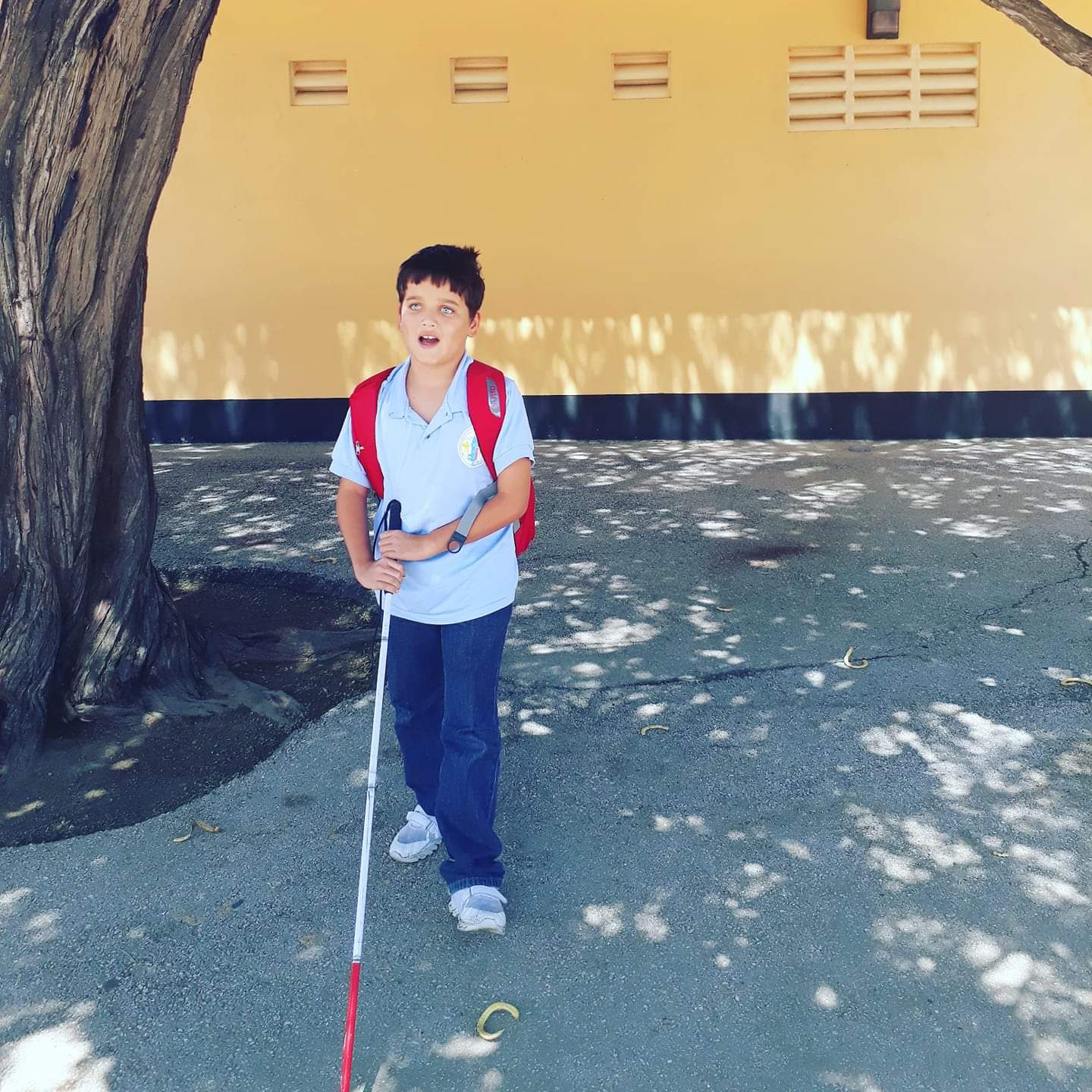
The phenomenal staff at FAVI carried the brunt of the work, helping Aruba’s sightless kids get through school – but they weren’t alone. From the schools that accepted them, AZV who take excellent care of their health, the Ministry of Education that supports them, the police department who made it possible for the kids to take their traffic test with the rest of their classmates, to all the citizens of Aruba who support FAVI fundraisers – it was truly the entire Island that helped these kids get where they are today. It hasn’t always been easy but I have no regrets.
I’m so glad we decided to stay on the Island. Next year, my son will face new challenges as he moves into the next phase of his academic career but, guess what?
I’m not afraid anymore. I’m to busy feeling gratitude, pride and love for this little community that helps our children find their way beyond the dark.


